Maintenance and Care
While porcelain countertops are known for their durability and low maintenance requirements, proper care is essential to ensure their longevity and pristine appearance. Here are some maintenance and care tips:
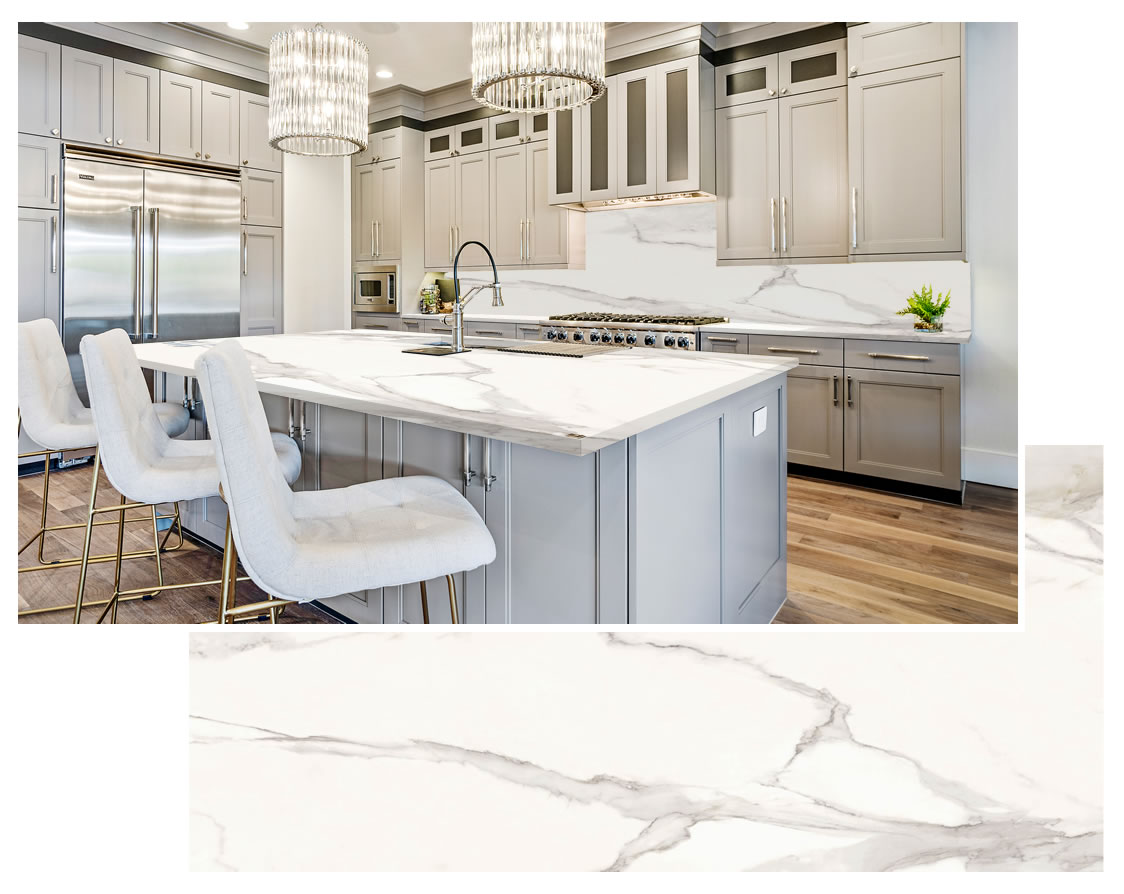
In the ever-evolving world of countertop materials, innovation is the driving force. Porcelain countertops are a groundbreaking material that elegantly combines the best features of quartz and natural stone. This comprehensive guide will navigate through the universe of porcelain countertops, offering a deep dive into their history, composition, production techniques, advantages, disadvantages, texture options, applications, real-world case studies, pricing factors, and essential maintenance tips. By the end of this extensive exploration, you'll gain a profound appreciation for why porcelain countertops are becoming the preferred choice for homeowners and designers alike.
Porcelain, often associated with dainty china and exquisite ceramics, may not be the immediate choice for countertops, but it boasts a rich and fascinating history that traces back to ancient China. Porcelain, primarily composed of clay, feldspar, and silica, was serendipitously discovered during the Tang Dynasty (618-907 AD). Its development was an accidental stroke of genius, quickly earning it recognition for its exceptional durability, translucent beauty, and remarkable versatility.
In the modern era, porcelain has undergone a transformative evolution. It has transitioned from being a decorative material to a remarkably functional one, used in diverse applications. From its humble origins in ancient China to its contemporary relevance in countertop design, porcelain's journey is a testament to human ingenuity and innovation.
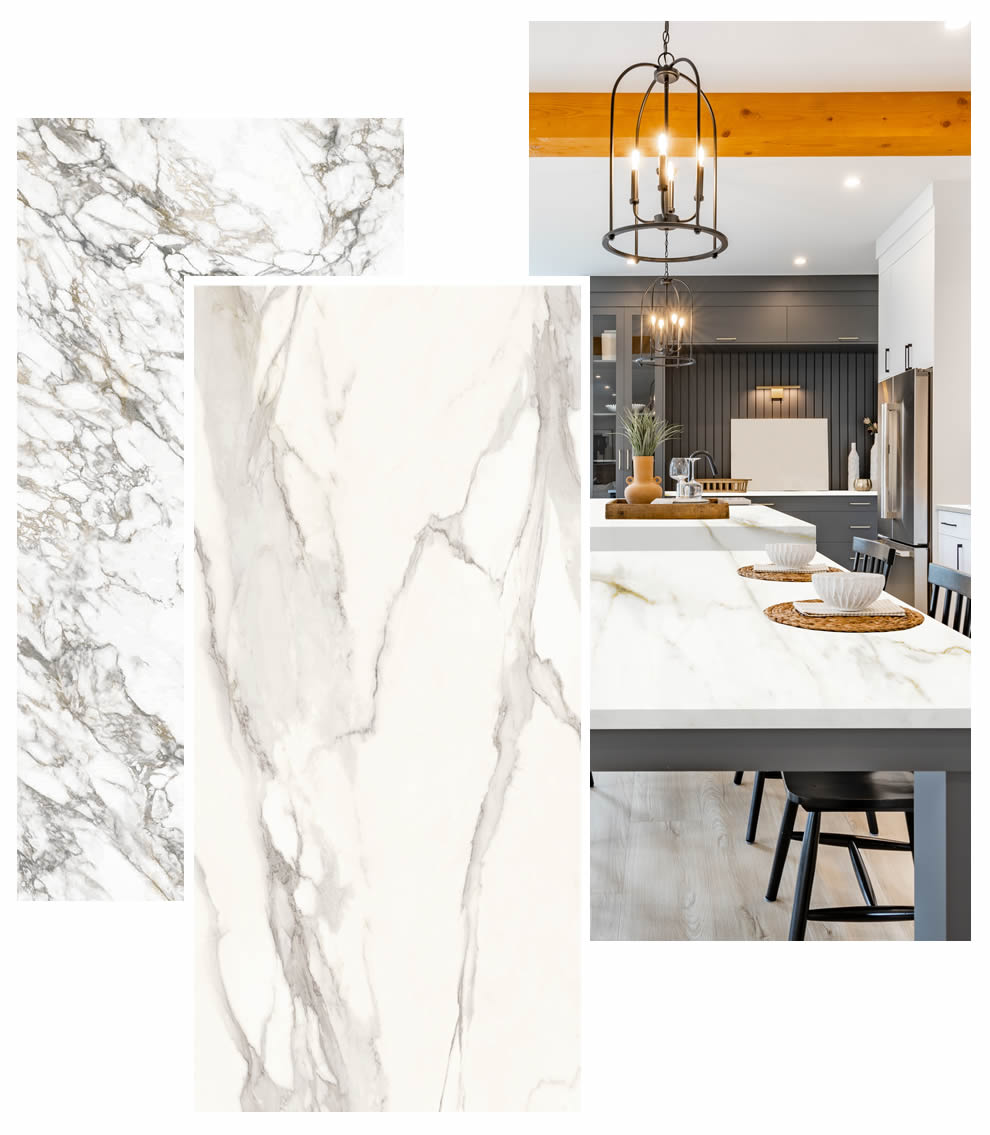




The production of porcelain countertops involves a series of intricate and precise manufacturing steps. Understanding these processes is crucial to appreciating the craftsmanship and quality that goes into creating these remarkable surfaces.
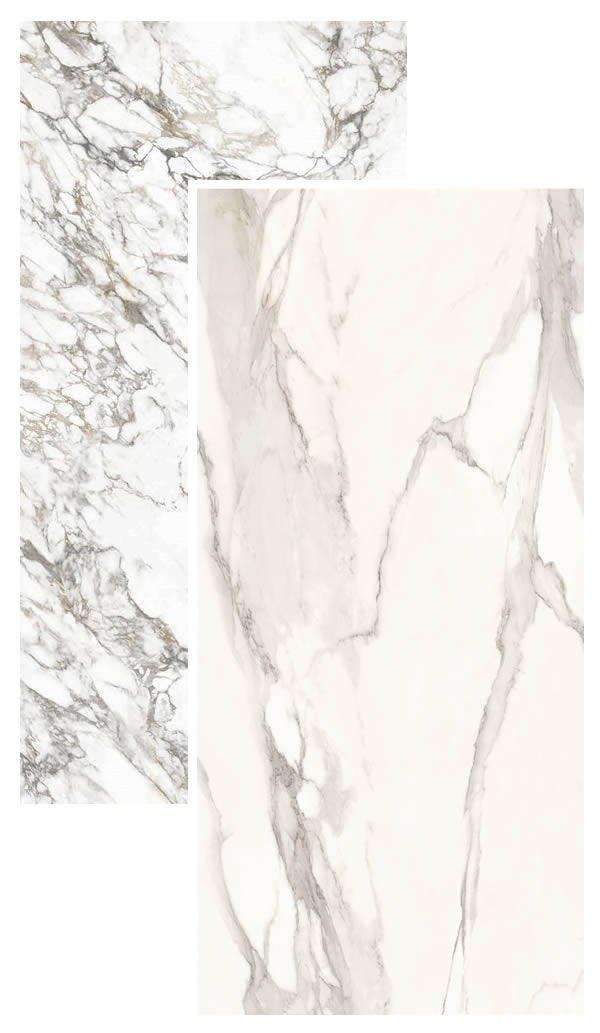
Porcelain countertops offer a plethora of advantages that set them apart as a preferred choice in modern kitchens and bathrooms. Here are some key benefits:
While porcelain countertops offer numerous benefits, it's essential to be aware of their potential drawbacks to make an informed decision:
One of the remarkable aspects of porcelain countertops is the extensive range of textures available. This diversity allows homeowners and designers to achieve specific design aesthetics. Here are some notable texture options:
Porcelain countertops' versatility extends beyond the kitchen; they are suitable for various applications within residential and commercial spaces. Here are some common areas where porcelain countertops excel:
The cost of porcelain countertops can vary significantly based on several factors. Understanding these factors can help you budget for your project effectively:
While porcelain countertops are known for their durability and low maintenance requirements, proper care is essential to ensure their longevity and pristine appearance. Here are some maintenance and care tips:
Porcelain countertops represent a revolutionary fusion of the finest attributes of quartz and natural stone, offering homeowners and designers a material that combines elegance, durability, and versatility. With a rich history dating back to ancient China, porcelain has evolved into a contemporary countertop solution that excels in both form and function.
The composition of porcelain, including clay, feldspar, silica, and mineral pigments, forms the foundation of its strength and aesthetic appeal. The meticulous production processes, including mixing, shaping, firing, and quality control, ensure that porcelain countertops meet exacting standards.
Porcelain countertops boast numerous advantages, such as durability, stain resistance, heat resistance, and low maintenance. They come in a wide range of textures and are suitable for various applications, from kitchens and bathrooms to outdoor spaces and commercial settings.
Despite their advantages, porcelain countertops do have some disadvantages, including cost, weight, and brittleness. However, these drawbacks are outweighed by their many benefits.
The diverse texture options available in porcelain countertops allow for customized design aesthetics, catering to a range of style preferences.
Real-life examples showcase how porcelain countertops can transform spaces, adding both functionality and visual appeal. Whether used in kitchens, bathrooms, outdoor areas, or commercial environments, porcelain countertops make a statement.
Understanding the pricing factors of porcelain countertops is essential for budgeting effectively, and proper maintenance and care ensure their longevity and pristine appearance.
In conclusion, porcelain countertops represent a dynamic and exciting choice in the world of countertop materials. Their ability to seamlessly blend beauty and resilience makes them a top contender for modern interior and exterior design projects. With proper care and consideration of the factors mentioned in this guide, porcelain countertops can elevate the aesthetics and functionality of any space.
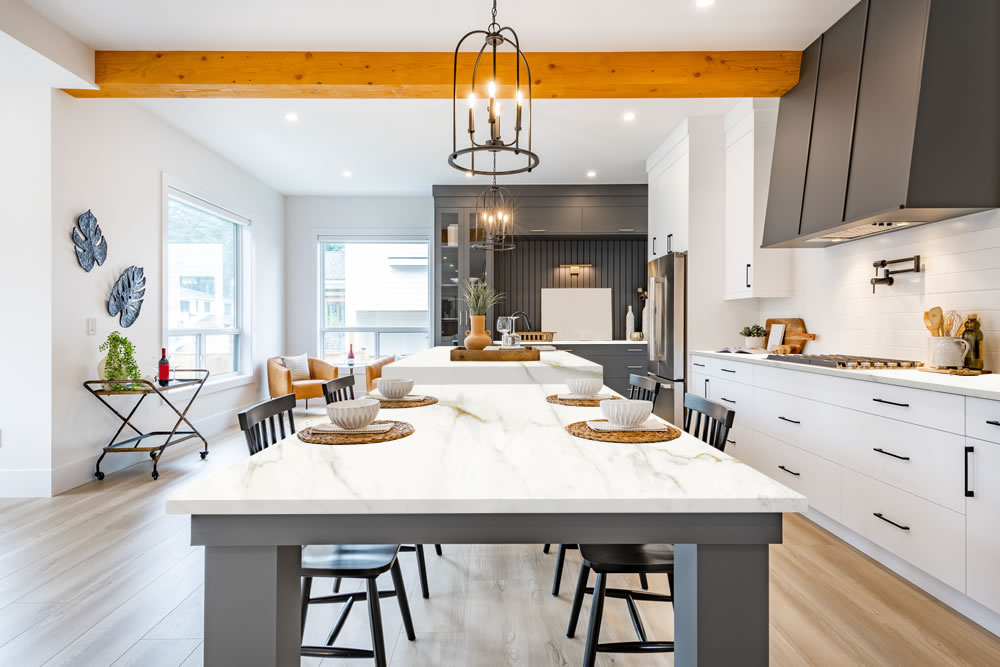
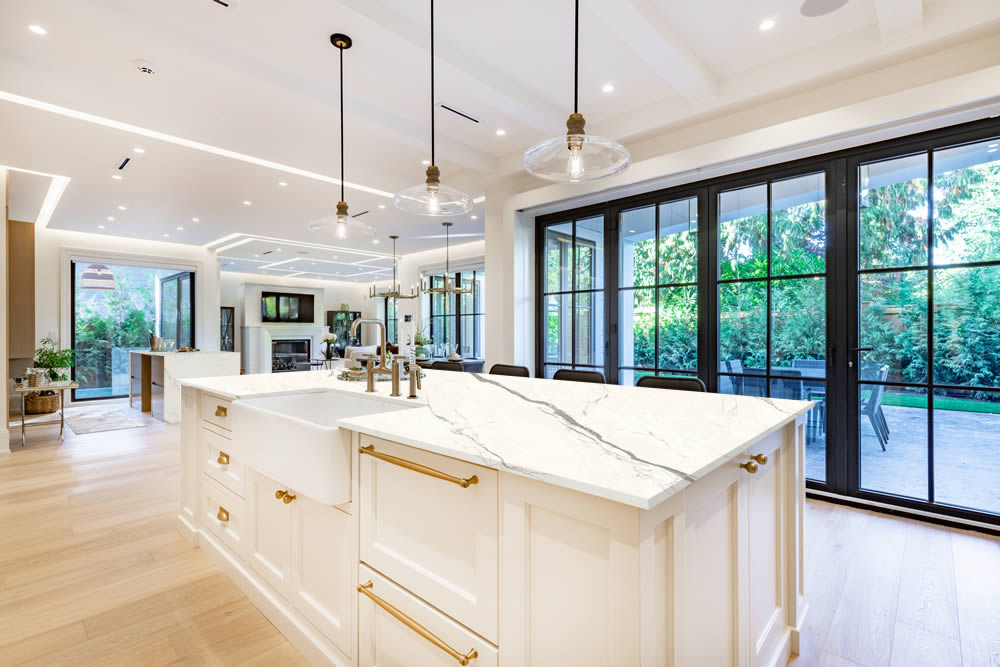
When it comes to selecting the perfect porcelain countertops for your project, you need a trusted partner who understands the intricacies of this remarkable material. Venezia Surfaces, a leading supplier of premium porcelain surfaces, stands as a beacon of excellence in the industry.
With a commitment to quality and a wide selection of porcelain countertop options, Venezia Surfaces has earned the trust of homeowners, designers, and builders alike. Their dedication to sourcing the finest porcelain materials, offering diverse textures and finishes, and providing expert guidance sets them apart as a reliable choice for your countertop needs.
Whether you're embarking on a kitchen renovation, a bathroom remodel, or a commercial design project, Venezia Surfaces can assist you in selecting the perfect porcelain countertop that meets your unique vision and requirements. With their unparalleled expertise and commitment to customer satisfaction, Venezia Surfaces ensures that your porcelain countertop investment is one that will enhance the beauty and functionality of your space for years to come.
Choose Venezia Surfaces as your trusted supplier of porcelain countertops, and embark on a journey of timeless elegance, durability, and style that only porcelain can provide.

Maryland: 1954 Halethorpe Farms Rd #500, Halethorpe, MD 21227
Florida: 6850 Lyons Technology Cir, Coconut Creek, FL 33073
